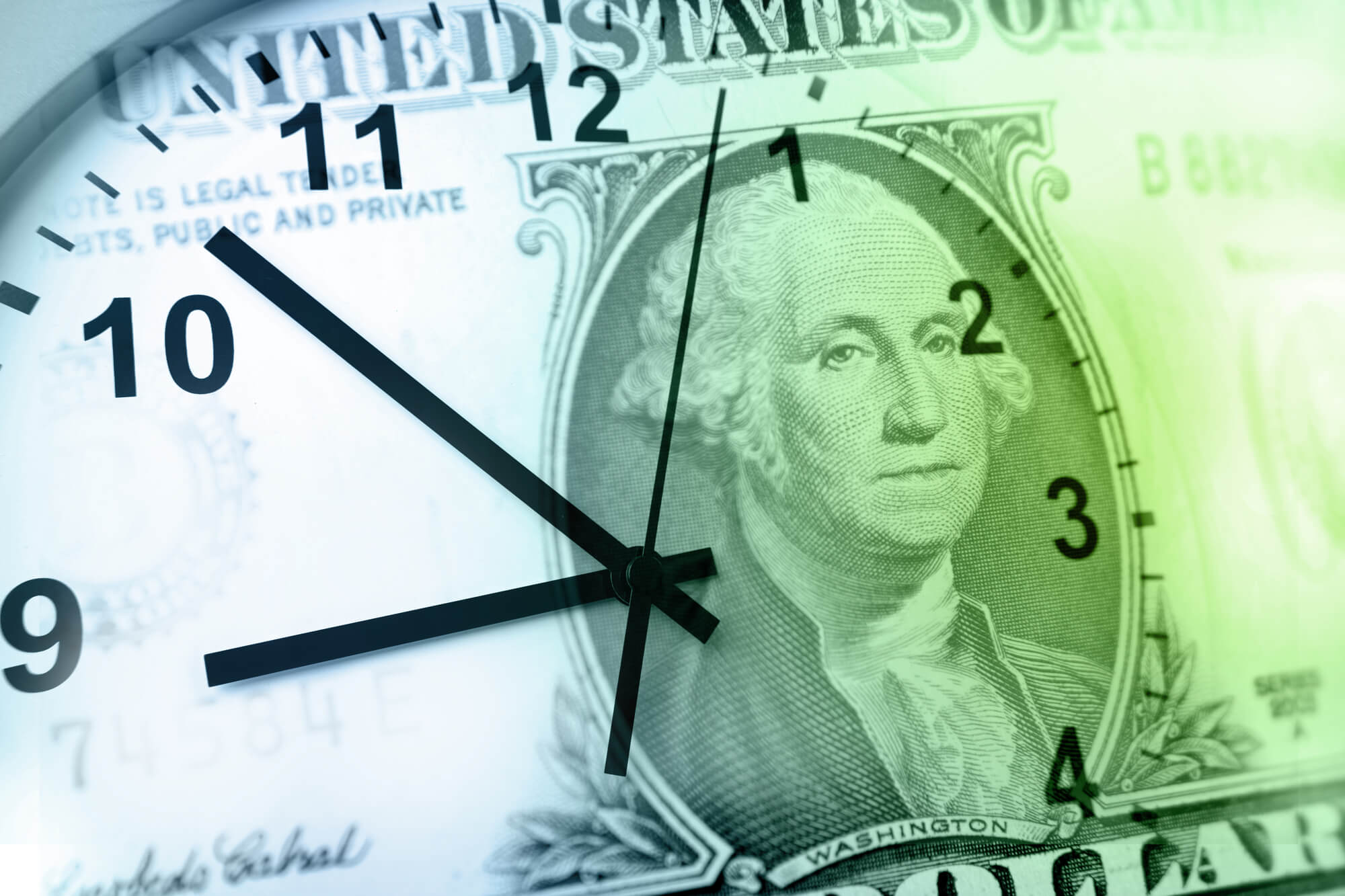According to the Treasury Department, in 2021, Americans held approximately $1600 billion in student loan debt, just under $1500 billion in auto loan debt, and around $800 billion in credit card debt. If you’re carrying any amount of that $3900 billion of debt, it can be challenging to navigate successful debt management. If you’re trying to decide whether or not you should pay off debts completely at a single time or pay them off slowly over time, there are a few considerations to be aware of. How you answer the following questions can help you determine which approach — paying off debt by making payments or paying off debt by paying the lump sum — is more appropriate for your individual circumstance.
1. What type of debt do you need to pay off?
In order to determine if you should pay off debt or make payments, it’s critical to define what type of debt you have. There are two main types of debt: there are installment debts, which are borrowed as a single lump sum at certain point, and there are revolving debts, which are borrowed at any given time from an available “pool”. Examples of installment debts include student loans or mortgages. Examples of revolving debt includes credit card or home equity line of credit (which is when you leverage the equity already established from your home to be used as collateral for a loan). Installment debts typically have a lower interest rate and are easier to manage over time, whereas revolving debts can have higher interest rates and can get out of control faster. Note that debt can also be unsecured or secured: secured debt uses property as collateral (such as your house).
Different types of debt should be approached in separate ways. If the debt you need to pay off is an installment debt, such as a student loan, there are advantages to paying it off over time versus upfront. Student loans can have tax advantages, depending on your income level (meaning there can be benefits to continuing to hold student debt). Student debt will usually have a lower, fixed interest rate, making it easier to stay caught up on payments. By choosing to pay off installment debts over time instead of at once, you can use the money that would have paid off the debt upfront to invest, save, or make other smart purchasing decisions.
If instead the debt you need to pay off is revolving debt, such as credit card debt, there are advantages to paying it off sooner rather than over time. Your credit score is determined by various elements, including both your credit utilization and payment history. Credit utilization is the amount of credit you are using divided by the total amount of credit given to you (i.e. if I can borrow $5,000 with a credit card, but I instead borrow $500, my credit utilization is 10 percent). Payment history refers to how much of a payment you make and when you make it. Because of this, making large payments or paying off credit card debt in full can help boost your credit score. Paying off credit card debt completely also eradicates the possibility of having a late payment in the future, because there aren’t any more payments to make!
Identifying the type of debt you need to pay off will guide you to understand whether to pay off your debt in full or over time.
2. Do you have an emergency savings fund?
When trying to decide if it’s best to pay off debt in full or to make payments, consider your emergency savings situation. A good rule of thumb for creating an emergency savings fund is that you should have 3-6 months’ worth of living expenses somewhere accessible (so not in a retirement account). You can use a variety of budgeting methodologies to help build your emergency savings.
If you find that you don’t have enough money set aside to cover an unexpected predicament, think about paying off debts over time rather than at once. By doing this, you will have more money to start building your emergency savings with. Having sufficient emergency reserves will prevent you from falling deeper into debt because you are able to handle unforeseen circumstances when they arise (rather than taking on more debt to cover the new costs).
If, on the other hand, you have much more cash than you need (ample to cover any emergency situation or sudden job loss), think about using some of that cash to pay off debts in full, or make as large of payments as possible. Even if your extra savings are sitting in a high-yield savings account, chances are high that the interest rate earned on the sitting funds is not compensating for the interest you’re paying on your debt (especially consumer debts).
Assessing your emergency savings and cash liquidity will help you choose to either pay off debts entirely or to make payments over time.
3. Are there certain savings goals you are trying to meet?
In addition to understanding your emergency savings situation, take the time to consider what other savings goals you might be working toward. If you are working towards a specific saving goal, such as for your children’s college education or toward retirement, it might be worth it to make debt payments rather than pay off all debt at once. By making payments toward your debt, you will likely have leftover money that can be used to continue pursuing your financial goals. Many investments use the magic of compounding interest, meaning the longer your money is invested, the more your investments will grow. Because of this, it can make sense to start or continue investing to meet long-term savings goals while making debt payments.
As noted above, it’s important to understand how interest rates relate to each other. Even if you’re earning 7 percent returns on your stock portfolio, it won’t matter if you’re losing 18 percent to credit card APR (you’re still technically netting -11 percent). Weigh your savings goals with your debt needs when deciding whether or not to pay off debt in full.
4. What other obligations do you have in addition to this debt?
Write down a list of all the payments or obligations outside of the debt you are considering paying down. Use this list of other liabilities to determine if it’s better for you to pay off debt or make payments.
If on this list you have multiple different debts to pay (such as an auto loan and credit card debt) as well as basic living expenses for yourself and dependents, examine if it’s even possible to pay off your debts at once while still covering living expenses and without dipping into emergency savings. If you can’t, resolve to make payments on as many of the debts as you can while still providing for yourself and loved ones.
5. How high are your interest rates?
Evaluating how high your interest rates are will help you decide if it’s better to pay off debt or make payments. The higher the interest rate, the more you will end up paying back to the lender over time. Paying off high-interest debts immediately can benefit you in both the long- and short-term.
If you have multiple debts with similar interest rates, paying off any of them will most likely benefit you. But if you have multiple debts, and one has a significantly higher interest rate than the other, consider paying off the high-interest rate debt first in full. This will prevent you from paying higher interest over time, as well as completely eliminating part of your debt. Appraising your interest rates is an important factor to consider when thinking about paying off debt.
6. What’s motivating you to pay off debt?
Perhaps you want to pay off debt because you borrowed money from a friend or family member, and you feel guilty you haven’t paid it back. Or maybe you want to pay off debt because you’re worried it will continue to increase, and you’d prefer to remove it get rid of it while it’s still manageable. Whatever the reason, understanding your goals and why you want to pay off your debt can guide you to either paying it off in full or making payments.
In either of the former situations, it might be more better to pay off the debts in full to rid you of the emotional stress the debt is causing you. If you’re thinking about paying off student debt instead, weigh the tax advantages of continuing to have this “good debt” and whether or the loan is has certain forgivability conditions (i.e. if you died, would your spouse still be responsible for the debt, or would it die with you?). In this latter situation, perhaps you want to take advantage of low interest rates and continue making smaller loan payments while putting your money to good use elsewhere. Thinking through your motivation for paying off your debt can help you choose how to do so.
7. Is your employment situation steady?
Another factor to consider when evaluating paying off debt or making payments is your employment situation. Is your job steady? Do you foresee volatility in your industry or company? Have layoffs occurred recently? Do you freelance or contract, and the volume of work you have changes with demand?
If you find yourself fortunate enough to hold a steady job, you have more flexibility to pay off debts immediately because you know more money is coming your way to help you pay your regular bills. If your work is seasonal or volatile, and you aren’t sure your next paycheck will make it to you, contemplate making payments on your debt instead to leave more cash available for regular living expenses (and to build up your emergency fund!). Your job can affect whether or not you want to pay off debts upfront or over time.
8. How good is your credit score and are you trying to improve it?
Your credit score can influence your decision to pay off debt or make payments. Payment history is the most heavily weighted credit score factor (it makes up 35% of the overall score). If your credit score is low, consider completely paying off debt to boost your score. If your credit score is good, you can most likely afford to continue to make payments on your debt (though paying it off in full will not hurt at all!).
9. What debt relief or alternative payment options are available?
Are there ways to completely get rid of your debt without paying it off from your own wallet? If you can find the money, consider paying off debt completely rather than over time. Ways to pay off debt include using government or private grants, capturing unclaimed money, selling unneeded items, or refinancing an existing loan.
If you can’t pay off debts immediately through other income sources, you can also evaluate debt relief options such as debt management. Debt management programs are typically run by nonprofits and can reduce the interest rate and monthly payments to feasible levels. Payments are then made directly to the nonprofit instead of any creditors (and the nonprofit will disperse the funds as needed).
10. Is it possible to save and pay off debt simultaneously?
This final consideration will help you create a plan to pay off debts in full or over time to achieve your financial goals. If you are financially able to pay off expensive, “bad” debts up front, and pay off “good” debts over time while continuing to invest and save for the future, do it! Use your budget to determine what is actually possible for you. Money is extremely personal, and you are your own best advocate. Trust yourself and take things one step at a time — the best approach to paying off debt can be to pay off some debts at once and other over time.
The Bottom Line
The answer to whether or not it’s best to pay off debt or make payments is “it depends”. By evaluating your circumstances using the factors discussed above, you can move forward with a plan that will help you rid yourself of debt and launch you on your path to financial independece. As always, think about consulting a financial professional to give you personalized advice for your individual circumstances.
Climb on, FinBase.
Bethany









